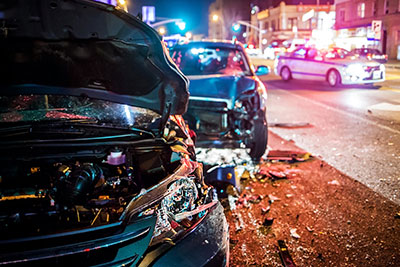
In 2020, through a grant from the Foundation for Advancing Alcohol Responsibility (Responsibility.org) and GHSA, the Illinois Department of Transportation (IDOT) increased the number of law enforcement officers trained in forensic phlebotomy. Forensic phlebotomy allows law enforcement to better detect drug-, alcohol- or polysubstance-impaired drivers who present a risk to everyone on the road, and reduces the number of driving-under-the-influence cases that go to trial with no toxicology reports.
IDOT’s initial goal was to provide funding to assist eight local law enforcement officers to be trained in forensic phlebotomy. However, the pandemic had an adverse effect on phlebotomy courses in the state. With law enforcement resources over-taxed throughout the pandemic, training opportunities like forensic phlebotomy were pushed to the bottom of the priority list. This led to the postponement of forensic phlebotomy courses on three separate occasions due to low participation numbers.
Following these delays, a decision was made to move forward with a forensic phlebotomy course with two officers enrolled. In November and December 2021, utilizing the class curriculum established specifically for the Illinois Law Enforcement Phlebotomy Program at Richland Community College, a course was conducted for two officers from the Libertyville and Bannockburn police departments.
While an accurate evaluation of this program is difficult given the unprecedented nature of the pandemic and its impact on police departments, this grant did increase the previously falling number of law enforcement forensic phlebotomists in Illinois to 25. The program also succeeded in increasing officer interest in the training.
While IDOT did not reach its initial goal due to the extreme circumstances of the pandemic, it cannot be overstated how important training two officers was in keeping alive the potential to expand this important program in Illinois.
